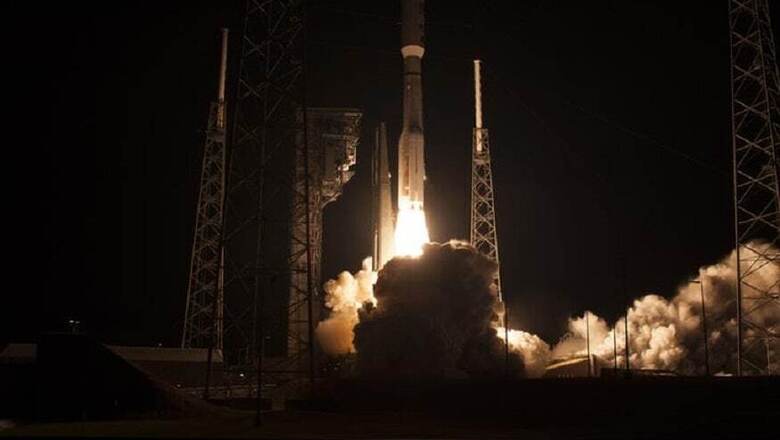
views
China today successfully launched two BeiDou-3 satellites to provide navigation and positioning services to countries along the Belt and Road initiative of the Communist giant by the end of 2018. The Long March-3B carrier rocket took off from Xichang Satellite Launch Center in the southwestern province of Sichuan at 7:18 a.m. (local time). This is the first launch of the BeiDou satellites in 2018, which will see intensive launches throughout the year.
The two satellites are coded the 26th and 27th satellites in the BeiDou Navigation Satellite System (BDS). The BDS is also being built as rival to US Global Positioning System (GPS). China plans to send 18 BeiDou-3 satellites into space in 2018, according to Yang Changfeng, chief designer of the BeiDou system. "The intensive launches will pose a great challenge. We must exercise strict control over quality specifications to ensure each of them is a success," Yang said. Aiming to promote international use, China will move to incorporate BeiDou into the international satellite navigation system, enhance international cooperation, and make it compatible with GPS from the United States, Russia's GLONASS, and the European Union's Galileo, he said.
The satellites and the rocket for today's launch were developed by the innovation academy for microsatellites at the Chinese Academy of Sciences and China Academy of Launch Vehicle Technology, respectively. Named after the Chinese term for the Big Dipper, the BeiDou project was formally launched in 1994. It began to serve China in 2000 and the Asia-Pacific region at the end of 2012. By around 2020, when the BDS goes global, it will have more than 30 satellites. The Belt and Road Initiative (BRI) is multibillion-dollar project started by China to build, roads, ports, railway and other infrastructure projects in different parts of the world to expand its global influence.
LG V30+ Review: An Alternate to OnePlus 5T and Samsung Galaxy S8




















Comments
0 comment